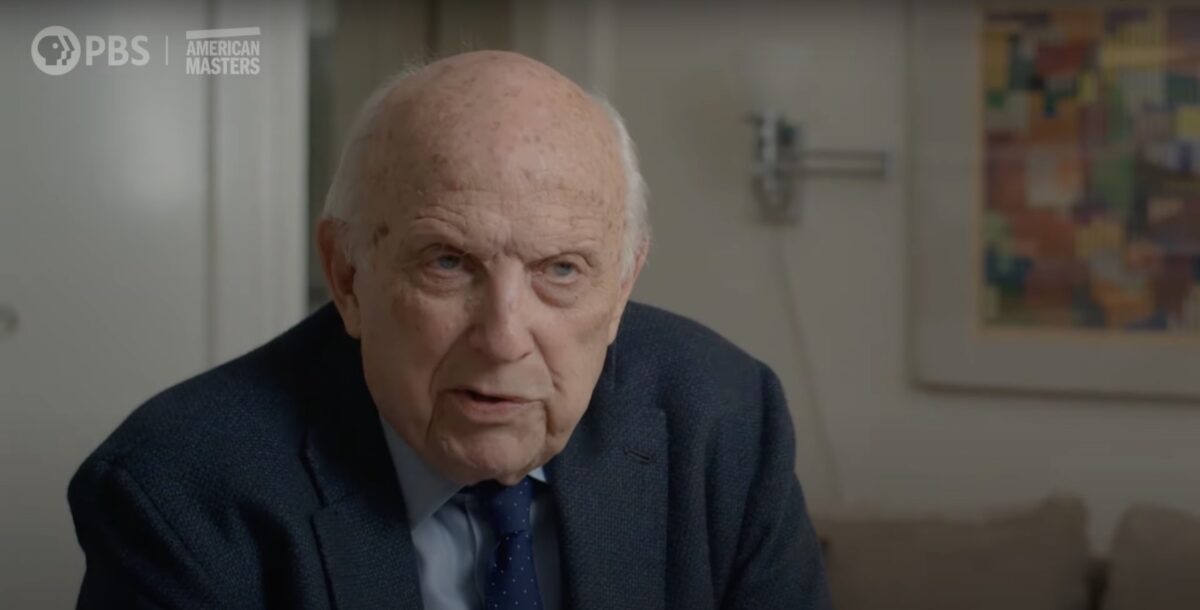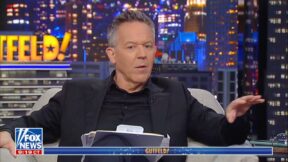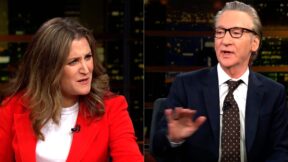Floyd Abrams On The New PBS Documentary Covering His Decades-Long Career Pioneering Free Speech Law

Screenshot via YouTube.
You cannot discuss the history of First Amendment law in this country without talking about Floyd Abrams, the attorney who has been the bulwark for free speech in some of America’s most notable cases, not just defending the rights of media outlets, journalists, corporations, charitable organizations, and individual citizens to voice their opinions, but many times establishing critically important case precedent that forms the foundation of freedoms we take for granted today.
Abrams is the subject of the next American Masters documentary on PBS. Floyd Abrams: Speaking Freely, which premieres on Friday, September 22 at 9 pm ET/8 pm CT on local PBS stations and online, will present the story of the history-making career of “the first First Amendment lawyer” and his key role in landmark legal matters ranging from the Pentagon Papers to Citizens United up to his recent defense of an AI company.
Mediaite interviewed Abrams in anticipation of the release of the documentary and to discuss his remarkable legal career and his thoughts on some of the free speech issues in the news today.
The documentary “wasn’t my idea,” Abrams quipped, and noted that he has been interviewed, along with his family, friends, clients, and colleagues and even some of his “detractors” over the years, so he knew there was some interest.
He described the focus of the documentary as “the scope and the nature of the variety of cases that I’ve worked on and argued in the Supreme Court and lower courts for many years now,” including “a wide range of cases representing journalists,” such as NPR’s Nina Totenberg, whom he represented when a Senate committee tried to force her to reveal her sources.
“It focuses on those cases and somewhat more broadly on my First Amendment views and and the views of others, some of whom have generally agreed with mine. Some of whom have been quite critical of some of mine in more recent years. I don’t think anyone on the on the documentary suggested I didn’t mean what I was saying. But there are people who disagree with some stuff.”
Abrams is senior counsel at the Cahill Gordon & Reindel LLP law firm, a lecturer at Columbia Law School, and a published author of several well-reviewed books on First Amendment issues.
His extensive list of notable cases include successfully defending The New York Times’ publication of the Pentagon Papers, classified documents that related to the U.S. military’s involvement in the Vietnam War; protecting journalists like Totenberg and New York Times investigative reporter Judith Miller from government demands to reveal their sources; representing the Brooklyn Museum of Art when then-New York City Mayor Rudy Giuliani threatened to withhold funding over outrage about a controversial painting of the Virgin Mary; and his work on the 2010 Citizens United case, in which the Supreme Court struck down a federal law restricting corporations and labor unions from making expenditures in federal elections.
Citizens United is unquestionably a case that sharply divides opinions, especially on partisan lines, as it is credited with paving the way for the proliferation of Super PACs and so-called “dark money” into federal elections. Abrams was involved as the representation for Sen. Mitch McConnell (R-KY), who filed an amicus curiae (friend of the court) brief, work he undertook for no pay and even though he did not ideologically agree with McConnell, as noted in this interview with his son, Mediaite founder and owner Dan Abrams.
Below are two video clips and a lightly edited transcript of Abrams’ interview with Mediaite.
SARAH RUMPF: Going back when you were starting your legal career, how did you develop an interest in specializing in First Amendment law? Because that’s definitely a specialty practice that most lawyers may have their whole career and never actually even try one case.
FLOYD ABRAMS: I was very fortunate. I went to a firm, the Cahill Gordon firm, that had NBC as a client and had been a client for a long time. It was a time, like they say, in our country’s history and with the legal challenges to the press, just really starting, that journalists were being subpoenaed to testify in cases where confidential sources were demanded, instances that the press was becoming more controversial itself as it covered the news.
And so beginning with the NBC work, I came to do other work for other clients, maybe most notably The New York Times for the Pentagon Papers case. And that led to a lot of work through the years for the Times and other newspapers, broadcasters, magazines, and the like.
RUMPF: There’s been a lot of popular discussion and criticism of some of these free speech issues as they played out in the media, the different notable people who have sued for defamation like Sarah Palin vs. The New York Times, some of the discussion — are corporations people, do they have First Amendment rights, as was litigated in Citizens United — when you see this discussion going on as somebody with your background and expertise, what are some of the big misperceptions that you see the public having or especially the media having? What what frustrates you? What are we getting wrong in the way that we discuss these issues and these cases?
ABRAMS: I’d say that the cases that have dominated, I guess you could say the first part of my career, for a number of years, involve areas where within the press itself, there wasn’t much disagreement. Confidential sources of journalists, for example, that’s a subject as to which people disagree, but journalists don’t tend to, for obvious reasons.
Some of the cases are indeed more controversial within the media itself. You mentioned Citizens United, that’s one case, cases involving new forms of technology, which I’ve had some involvement, that’s still a pretty new area, in terms of new technology and the First Amendment. So, you know, in that sort of area, there are competing interests of importance. There’s a First Amendment interest. There’s a privacy interest, which sometimes is at issue, sometimes at war with the First Amendment issues.
RUMPF: In terms of what the First Amendment is supposed to protect, I often see a lot of discussion online where it seems that the person who’s criticizing is first looking at whether the speech offends or annoys them instead of looking at whether it’s protected. What kind of advice would you give people to do that analysis correctly? Because, as I’ve written, free speech isn’t to protect photos of kittens and my cookie recipes; it’s for the stuff that ticks people off, it’s for the stuff that makes the politicians mad, it’s for the things that ruffle our feathers and make us angry.
ABRAMS: And you’re right. That also makes it controversial. Not just in the context of libel suits, but in the context of people saying, you know, I don’t like that view or that person for having that view. I mean, that’s protected by the First Amendment also. But it would be a good idea if people had a shade more tolerance for views that they disagree with, even disagree with very strongly.
There really are competing social interests of which free speech is one…and sometimes the public gets upset that this or that. You mentioned online speech, where there’s a lot of very nasty stuff online. And for the most part, almost all of it is First Amendment protected.
That doesn’t make it all admirable, but it does mean that there is no room for the government to play. I mean, after all, the First Amendment is at its core, protection against the government, not each other. It is designed to make sure that whether we’re talking about the United States or Mississippi or a city, that, speaking broadly, speech is protected. And certainly speech about the government is just about always protected. I mean, that’s the core of it. But that doesn’t mean that people can’t have rational disagreements about where we should be going as a society.
You mentioned new technology — well, of course, that’s an area where there’s a lot of room for criticism of this or that online entity. Or in my case, I represented an entity that was involved in essentially what’s called facial recognition, that photographs of people on the public internet, photographs that anybody can look at and have no genuine privacy claim of that, are often very helpful to the FBI or the police. And the client that I was representing was asked after January 6th, for example, and there are a lot of people who engaged in conduct there, which was either potentially or accurately criminal, where the only photographs were fleeting things, half a face, just a bit. The technology is available now where you can come very far down the road of identifying people without seeing the totality of their face.
And much more than that. My client, for example, has been very helpful to the Ukrainians in that war because they can identify dead Russian soldiers. And how can they identify them? By comparing what they look like to their high school photographs that the Russians have online. And so, the client helped out the Ukrainian side by sort of answering the question about who are the casualties. And the Ukrainian government then wrote letters to Russian mothers, saying you ought oppose this war, look what’s happening.
That’s just one example. New technology itself is is developing so quickly, that our society is going to have to make serious decisions down the road about what to do, what direction, if any, the law should play. With respect to what the ability of technology now, what, to summarize available books, a whole world of works of art in milliseconds and recreate it? Well, does that violate the copyright law? Well, maybe.
RUMPF: Or to mutate into new versions, rewrite Jane Austen with Marvel characters or something like that — who owns the copyright in that?
ABRAMS: Put it this way, the next generation of lawyers is going to have lots of work to do as a result of the development of exciting technology as to which we’re not sure as a society what we want to make of it and what sort of legal claims should be available.
RUMPF: If you were looking back at at your career, what case do you think in the end, 100 years from now, is going to be looked at as the one that has had the biggest impact on law in this country, and what is one that may not have made the most headlines but was one that was personally very satisfying to you or one that you’re very proud of?
ABRAMS: Well, the most important case, I think, remains the Pentagon Papers case, where the government went to court during the the war in Vietnam to suppress articles published in The New York Times, about how we got into the war and what it was that the public hadn’t been told about how and why we got into the war, based on highly classified government documents that had been made available to the Times by Daniel Ellsberg.
So that’s a case that’s important not just for the time in which it arose, the war in Vietnam. It’s important because it is a limitation on the power of the government, even the president, from from taking steps to suppress speech, because the government would prefer that the speech not be allowed. So that I think is probably the most important thing. And that’s a case also where the government went to court literally to stop The New York Times from publishing information of this sort, how we got into the war and how the public had been deceived.
In terms of cases that I’ve worked on, which had not received the most coverage? I do have in mind the case — and you mentioned it, which got a lot of coverage, but as to which I don’t think it’s yet been fully understood or accepted how important it was — and that was the Brooklyn Museum case in which the mayor of the city of New York basically said he was so offended by certain paintings in the Brooklyn Museum that the city would cut off the aid that had already been promised to it.
Obviously, the city doesn’t have to fund museums, but if it starts down that road and then stops because the mayor has an ideological, at least that’s that the mayor said, difference. It’s wrong, it’s anti-religious, he said. Anti-Catholic, he said, anti-this, he went on and on.
It’s really important that we won that case and won it in a very visible way. I mean, that case didn’t lack for publicity, but that case wasn’t just a New York City case, and it wasn’t just a Rudy Giuliani case, but it really did help to solidify the First Amendment as a barrier to state, local, and federal governments from suppressing speech.
RUMPF: If you could clarify that the facts in that case, the art that he was objecting to — I think a lot of Americans would look at that and say, “That’s offensive.” It was, if I recall correctly, it was depictions of the Virgin Mary in some sort of obscene or derogatory way?
ABRAMS: It was a painting that was basically what you said, a picture of an African woman, and it had on it in an African style, elephant dung, which is used by artists there, and some other material which would understandably, deeply offend a lot of people. And you can see, people with goodwill — we’re not talking just about politicians who want to get more votes. Real people sometimes get deeply offended, and we shouldn’t mock them. They just can’t use the force of government to impose their views in a way which suppresses speech.
And in the Brooklyn Museum case, it was all very literal. A certain amount of money had been appropriated, the mayor said, take that picture down, he said that literally, take that picture down, or you’re not going to get any more city money. And that’s almost a definition of what the First Amendment precludes.
RUMPF: I just I wanted to clarify that because, again, that case is such a good illustration of the difference between this is offensive, but it’s still protected speech, so it’s okay. We can recognize that and point to it and say, that’s horrible, that’s offensive. I wish that hadn’t happened. I don’t like that, but I’m not going to allow the government to act on that. I’m going to act on that. I can speak about that. We can all say, we don’t like that, but we shouldn’t want the government acting to stop that art.
ABRAMS: You get it. Citizens can protest in a variety of ways, though the obvious one is not to go, but they can do more than that. They can picket outside. They can urge people not to go. Right? I mean, some newspapers at the beginning of this, in any event, came down very hard on the Brooklyn Museum, and that’s all allowed, that’s protected by the First Amendment too.
RUMPF: To wrap up, what what do you think is going to be the next big free speech issue that we’re going to see — the core of the fights over the next decade?
ABRAMS: Two things come to mind — one is technological advances, which run into speech issues. I don’t see any way to avoid a lot of litigation and conflict on that.
The other is a question which the Supreme Court may turn to sooner rather than later, and that’s whether the social media gets the same sort of protection that newspapers do, the law with respect to the print press, or books or movies or television. It’s pretty clear now, there’s an enormous amount of First Amendment protection. But the Supreme Court may well hear in this term of the court a case about the question of whether a state can say that social media entities can’t do this or can’t do that, or have to allow public documents saying what they’re doing — documents of the sort that no newspaper could be forced to reveal. So I think those two areas, are ones in which there’s going to be a lot of conflict for quite a while.
***
Floyd Abrams: Speaking Freely premieres on Friday, September 22 at 9 pm ET/8 pm CT on local PBS stations and online.
Stay tuned for Part 2 of Mediaite’s interview with Floyd Abrams, discussing the free speech issues relevant to Florida Gov. Ron DeSantis’ dispute with the Walt Disney Company.
New: The Mediaite One-Sheet "Newsletter of Newsletters"
Your daily summary and analysis of what the many, many media newsletters are saying and reporting. Subscribe now!






Comments
↓ Scroll down for comments ↓